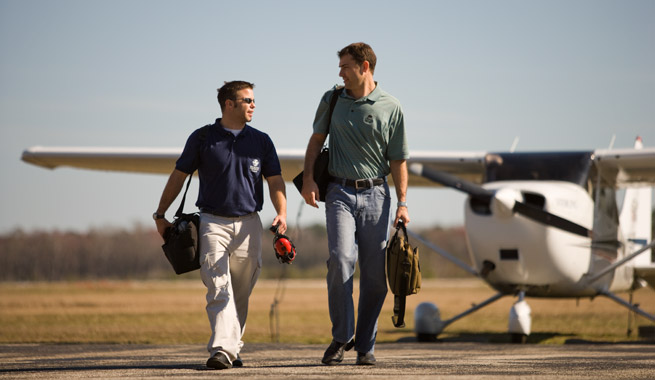Outdoor education is on the rise across the world, and as we watch our young students experience the outdoors more often, we are also seeing a positive trend in just about every category of well-being. Essentially, when students get outside, their lives get better and communities become stronger because of it.
Outdoor education, or nature-based learning, utilizes the outdoors to teach students a variety of different topics. Contrary to popular belief, outdoor education utilizes state and national standards for education and it doesn’t just teach kids about plants and trees. Yes, there’s a lot about plants and trees, but there’s so much more to be explored. The outdoors is a different kind of classroom where several subjects are being taught in new and different ways.
There are countless Outdoor Education programs around the world and more are popping up each year. Some places make Outdoor Education a mandatory part of schooling for all youth, and some schools push for these trips on their own. Schools are feeling the benefits of outdoor education. As urban sprawl and technology updates continue to dominate the world, we need to fight more than ever to get our students outside. While there are hundreds of reasons why, here are a few that show up at the top.
Increase in School Performance
Students that have consistent outdoor activity are much more attentive than when they are indoors all day long. This leads to an increase in retention and therefore better performance. It’s not just about increasing students’ ability to pay attention though.
The outdoors provides a completely different arena for multiple styles of learning. There are so many opportunities for hands-on activities that engage all of the senses and appeal to students with various learning styles. Where some may struggle in a classroom, they will excel with their hands in the dirt. It brings the natural world out from behind the screen of a tablet and puts it directly into students’ hands where they can feel it, smell it, and truly experience it.
It’s worth mentioning the increase in school performance simply due to helping a student become more confident. Outdoor education grows community and with that, helps to strengthen the relationships between students. A more cohesive class and student body lead to an increase in academic performance.
Better Connections and Community
When students are provided with the opportunity to show up as themselves, it’s a quick transition to newly formed friendships and community interactions. Outdoor education is meant to be a space in which students no longer feel trapped or held back by the walls of a classroom. When play is incorporated into a lesson plan, some of the quietest students open up.
Students become themselves and then are given responsibilities that aren’t often found in a traditional school setting. They no longer become students, but transition over to being participants. Participants help to run their own program and take on the responsibilities and high expectations that come with the job. When youth are handed the opportunity to have control over their experience, they are more invested and naturally work better together.
Outdoor education puts a large emphasis on group and team building, which transfers back into the classroom and their home lives. These social skills are taught in fun and engaging ways that help students to work together, resolve conflict, and express themselves in healthy ways.
Increase in Caring for Nature
An increase in time in nature naturally leads to an increase in caring for nature. In Richard Louv’s book, Last Child in the Woods, he talks about how our loss of knowledge is one large part of the bigger issue. We don’t know nature, and therefore don’t care for it. When we begin to learn about it and understand it, we can start to better care for it.
The experiences in nature at an outdoor education program also lead to future engagement in outdoor recreation activities. Starting out backpacking is a fantastic introduction to outdoor recreation where the physical and psychological benefits of outdoor education will continue to grow. Even just going for weekly walks in the woods will help to foster these benefits and help someone learn the importance of nature.
When we can increase our care for nature, we will naturally start to treat it better. In this way, we can bring more environmental stewardship into schools and communities around us.
Increase in Physical and Psychological Well-Being
Reduced stress and anger are only a glimpse into the drastic psychological benefits of outdoor education. Nature-based learning has been proven repeatedly to decrease aggressive behavior and increase impulse control in students. As a result, classrooms become healthier and more stable places that are more about learning and less about behavioral management.
Stress and anger start to decrease and general moods begin to elevate. Emotional regulation becomes an easier task to tackle, and removing technology puts a pause on the psychological damage being caused by years in front of a screen. Even the dirt makes you happy. Mycobacterium vaccae is a microbe found in soil that increases your brain’s production of serotonin. Simply put, getting dirty makes you happy.
The physical benefits of being outside, even for short periods of time, are huge. Some members of the long list of benefits are an improvement in eyesight, a decrease in obesity levels, and a general increase in the desire to engage in outdoor exercise.
A large portion of outdoor education is learning about the food we eat, where it comes from, and what it does for our bodies. When we educate our children about farming, fruits, and vegetables, there is an increase in a general desire to eat healthier. When this is combined with the natural benefits of being outside, a healthy lifestyle starts.
Author: Ian Standard at Outdoors Generations










.jpg)


